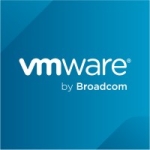What is most valuable?
First of all, the ease of deployment. I’m pretty sure that almost anyone could do simple transformations without having any knowledge of IT. Thanks to its graphical interface this tool is just drag and click. Another advantage, is that it fits everywhere. You can connect it to Big Data sources, relational databases, and all types of files. If the developer missed something, you can try finding it in the marketplace or quickly develop it yourself, because it is opensource.
How has it helped my organization?
We use it almost everywhere, for creating data marts, data warehouses, and implementing BI reporting tools. We also build our Customer Centralized File and Data Quality Studio using it. What’s more, we use it for small solutions too, i.e. if we want to quickly export data from database to .xlsx. We also develop our own plugins for PDI and put them into the marketplace.
What needs improvement?
For how long have I used the solution?
I've been using it for four years, and when I started using it I was in college. I quickly found that PDI with my text search analytic plug-in is useful for preparing notes for classes. When I was bored I came up with a funny tool. It was collecting data from all my roommates about what they need from shop and it was sending notifications to peoples phones who were going to the shop.
What was my experience with deployment of the solution?
We have never had any problems with deployment.
What do I think about the stability of the solution?
There are some with stability. As I said before there are some small bugs but it’s Pentaho you can always find workaround for it.
What do I think about the scalability of the solution?
With the Pentaho Community version you just download it, unpack, and it should be running. If not you should also install Java.
How are customer service and support?
Customer service isn’t needed. Every problem solution is on the internet. If not, you can post it to community forum and you will get an immediate answer, but I have never had to post a new topic.
How was the initial setup?
Straightforward. You just need to unzip file and you can already run it. There is also some setup if you need. It’s very simple you just need to edit three files in notepad.
What about the implementation team?
I did this myself and we do it for other companies. All installations are easy, and you do not need to be an IT magician.
What's my experience with pricing, setup cost, and licensing?
There is a Community Edition which is free. There is also an Enterprise licence but the price varies depending on the server hardware configuration and the purpose of use (BigData, Hadoop, etc.).
Which other solutions did I evaluate?
I had the chance to test SAS Data Integration but I didn’t fall in love with it like I did with PDI. I think that PDI is easier to use and you can do much more with PDI than with SAS.
What other advice do I have?
The tool is excellent, and almost everyone can use it. You just need to take it out of the box and run. There is no limit to the application – you can do everything with it. However, it still has a lot of faults. Not every component runs as you wish to. Always look for solutions on the Internet. There are many problems and build transformations/jobs that are already fixed.
Disclosure: My company has a business relationship with this vendor other than being a customer. Company where I work Sanmargar Team is a reseller of this solution and a Pentaho partner in Poland.














